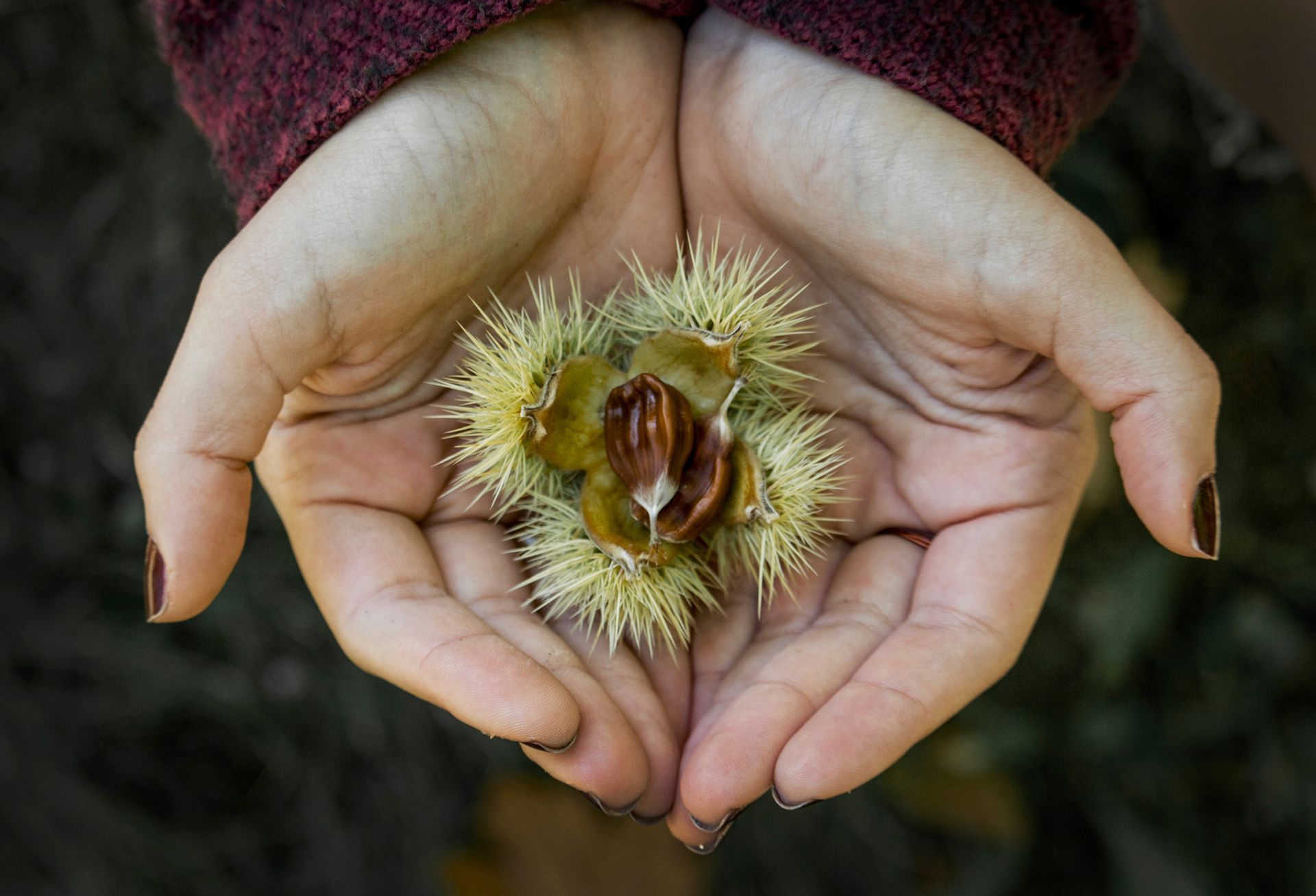Your Donation has Deep Roots
For each $25 of your donation, you’ll get a Chestnut seedling of your choice — donate $100 and get 4 seedlings, or get 10 seedlings for your $250 donation! We offer both American Chestnut (limited supply) and Chinese Hybrid — read about the varietal choices below.
American: 100% pure American (limited supply)
Chinese Hybrids: Auburn Super, Dunstan, Mossbarger, Qing or Shotgun
Get One Seedling
For each $25 of your donation, you’ll get a Chestnut seedling of your choice.
Give More, Get More
Donate $100 and get 4 seedlings, or get 10 seedlings for your $250 donation.

Auburn Super
Origin: Seedlings from the Auburn Super tree, released by Auburn University.
Nut Qualities: Known for producing among the largest nuts among commercial Chinese chestnut cultivars. Nut quality is good, although trees may occasionally overbear, leading to smaller nuts.
Tree Characteristics: Cold hardy to at least Zone 5a, these trees are strong and vigorous growers, producing extra-large nuts.
Special Notes: Auburn Super is an excellent choice for growers seeking maximum nut size and commercial viability.
Mossbarger
Origin: Seedlings from the Mossbarger tree, a selection from Kentucky.
Nut Qualities: Produces 30-34 nuts per pound, known for very good flavor when eaten raw or cooked. Some nuts may develop splits, a trait seen more often in hybrids.
Tree Characteristics: The tree is reputed to be pure Castanea mollissima but shows hybrid traits, with unusually thick stems, branches, and trunk. Cold hardy to at least Zone 5b.
Special Notes: Mossbarger seedlings are an excellent choice for growers seeking trees with a robust growth pattern and flavorful nuts.
Dunstan
Origin: American Chinese hybrid developed by Robert Dunstan.
Nut Qualities: Known for producing among the largest nuts among commercial Chinese chestnut cultivars. Nut quality is good.
Tree Characteristics: Cold hardy to at least Zone 5a, these trees are strong and vigorous growers, producing extra-large nuts.
Special Notes: Highly popular tree for commercial and wildlife forage.
Qing
Origin: Seedlings from the renowned Qing tree, named by Mike Nave. The original tree is of unknown origin and is growing in Hickory, Kentucky.
Nut Qualities: Extra-large nuts (~20-25g/nut) with an exceptionally sweet flavor. Shiny, dark brown, and stored well even among Chinese varieties.
Tree Characteristics: A heavy producer, this tree focuses more on nut production than vegetative growth, contributing to its smaller size. Cold hardy to at least Zone 5a.
Special Notes: Qing nuts are sweeter than many small Chinese chestnuts and fall in early to mid-season. The tree was planted in the late 1950s or early 1960s.
